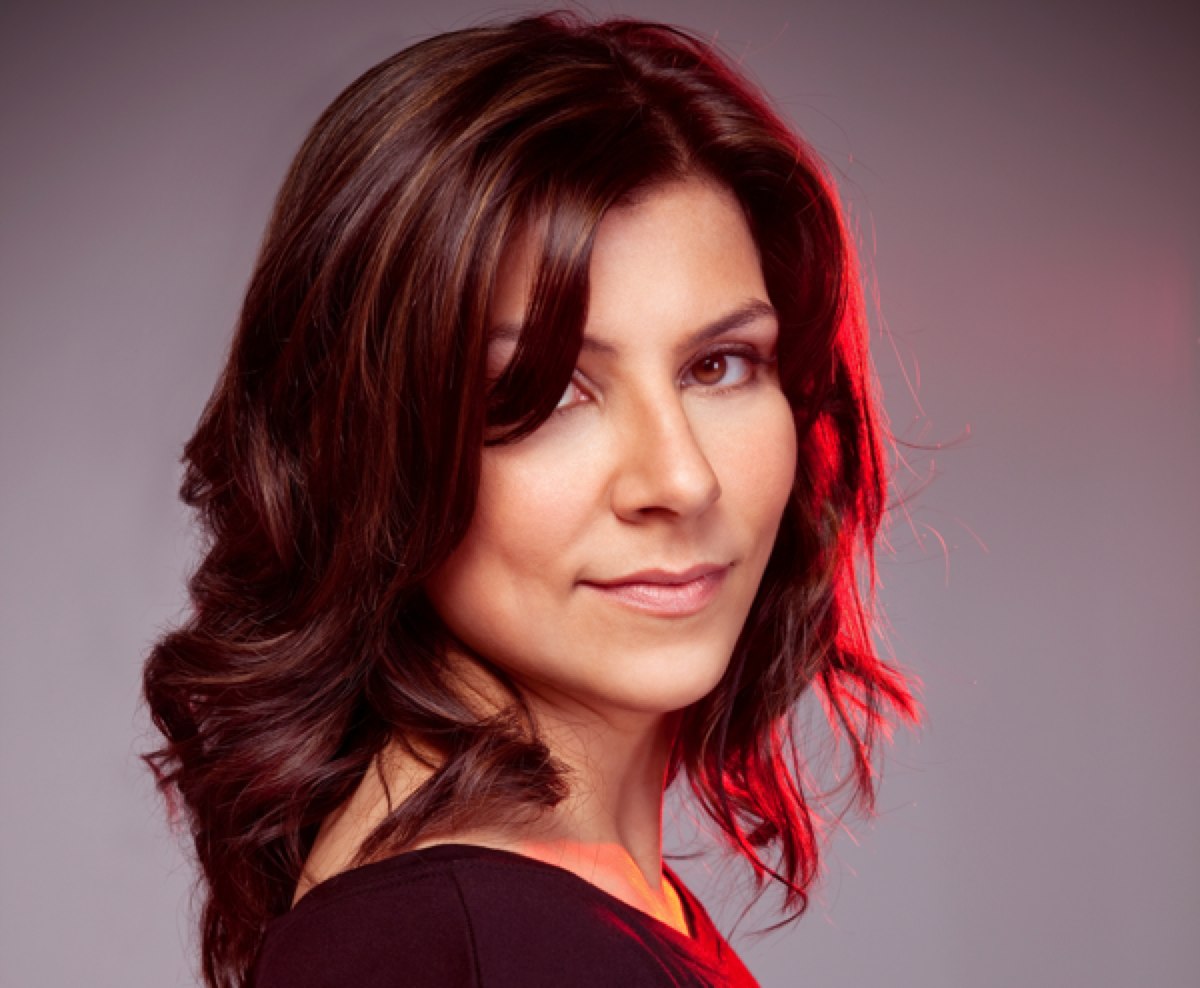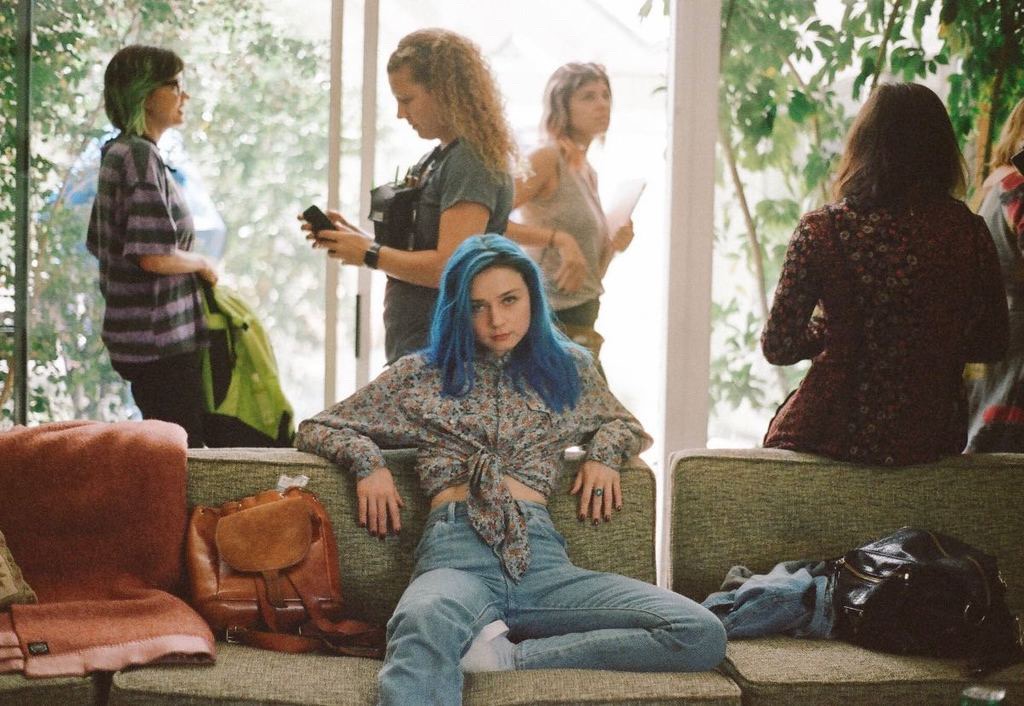In 2010, I was plucked out of obscurity when Roger Ebert became my Twitter pal and started bringing attention to my little blog (which eventually led to writing for this site). At around the same time, he also befriended Kelly Oxford, a fellow Canadian writer whose humorous Twitter one-liners were amplified by Roger and eventually got Hollywood’s attention. Oxford has since moved to Los Angeles, written two books, gone viral with her pre–#Me Too #NotOkay hashtag about surviving sexual assault, gained a variety of IMDb credits (including parts in “Sharknado 2” and “The Disaster Artist”), and eventually got greenlit for “Pink Skies Ahead,” her debut film as writer and director.
Though the pandemic robbed “Pink Skies Ahead” of a proper world premiere (originally slated for SXSW in March 2020), it was finally picked up by MTV a few months later, where it’s now streaming. I sincerely hope this movie finds its audience because it’s incredibly fun, and it’s a much-needed “f**k you” to the manic pixie dream girl trope.
The film centers on Winona (Jessica Barden), a writer and college dropout who moves back in with her parents (played by Marcia Gay Harden and Michael McKean) until she figures things out. Right out the gate, she’s diagnosed with anxiety disorder by her family doctor (Henry Winkler) and spends most of the movie in denial until her symptoms become impossible to control and ignore.
Her blue hair and tart tongue recall the character of Clementine from “Eternal Sunshine of the Spotless Mind.” But the similarities to manic pixie dream girls end there, as this film isn’t about some dude who “finds himself” via the quirky wild girl who falls into his life. “Pink Skies Ahead” is told entirely from Winona’s perspective; the desires we follow are hers. The men who wander in and out of her life are drops in an already full cup that’s about to spill over.

In fact, Winona’s one attempt at a serious relationship ends when the guy figures out that he doesn’t want to be with someone who doesn’t have her shit together. This plotline doesn’t exist to make room for a better suited romantic interest; it’s just one of the events that worsens her anxiety symptoms.
And if the men existed to rescue Winona, they’d be hard-pressed to succeed because she’s utterly disinterested in saving herself. She only adheres to therapy after suffering from a prolonged panic attack where the only way out is psychological intervention. What I’m driving at is that there are no whimsical qualities to Winona. She’s interesting and funny and original, but she’s also a blatant weirdo. A little too manic and not enough dream.
But if there is one dreamy feature of this film, it might be the soft pink hue that filters every shot. Though it’s sometimes a subtle detail, it serves more than one purpose. And while it might be tempting to attribute the pink to femininity, there’s nothing to suggest Winona follows those standards. But because we’re locked into her perspective, and because this is a particularly cacophonous period in her life, the pink feels like a calming presence, muting Winona’s surroundings and stabilizing her inner life. It also evokes the hazy movie aesthetics of the 1970s, when crisp images weren’t a perennial value. Since the film is set in the late ’90s, pinkness becomes a vintage wash that anchors us in the past.

The fact that “Pink Skies Ahead” takes place in the past proves important, as it least partially explains why Winona doesn’t take her diagnosis seriously. At the time, we didn’t have as comprehensive of a vocabulary to convey the experience of mental illness because it wasn’t normalized.
In the late ’90s, Winona hasn’t been conditioned yet to scour the internet for her symptoms, and the few phone calls she makes are from a landline. So her anxiety is lived in isolation, with very few means to help her understand just how serious and debilitating anxiety can be. It’s only after she’s had a serious panic attack that she learns it may have been passed down by her father.
Or maybe the pink represents the rose-colored glasses we wear to remember our personal history. Maybe the movie is one prolonged recollection that Winona has about that summer she found out she had anxiety. And she looks back at the last time her parents took care of her like she was still a child, and the close friends she had, and the smart PhD candidate she dated, and thinks it wasn’t that bad.
Dealing with anxiety means a lot of de-catastrophizing. It’s often about reframing the events happening around you and finding a way to convince yourself that things aren’t as bad as they seem. If you apply that to the past with enough vigor, it becomes possible to believe that more good stuff lies ahead.












